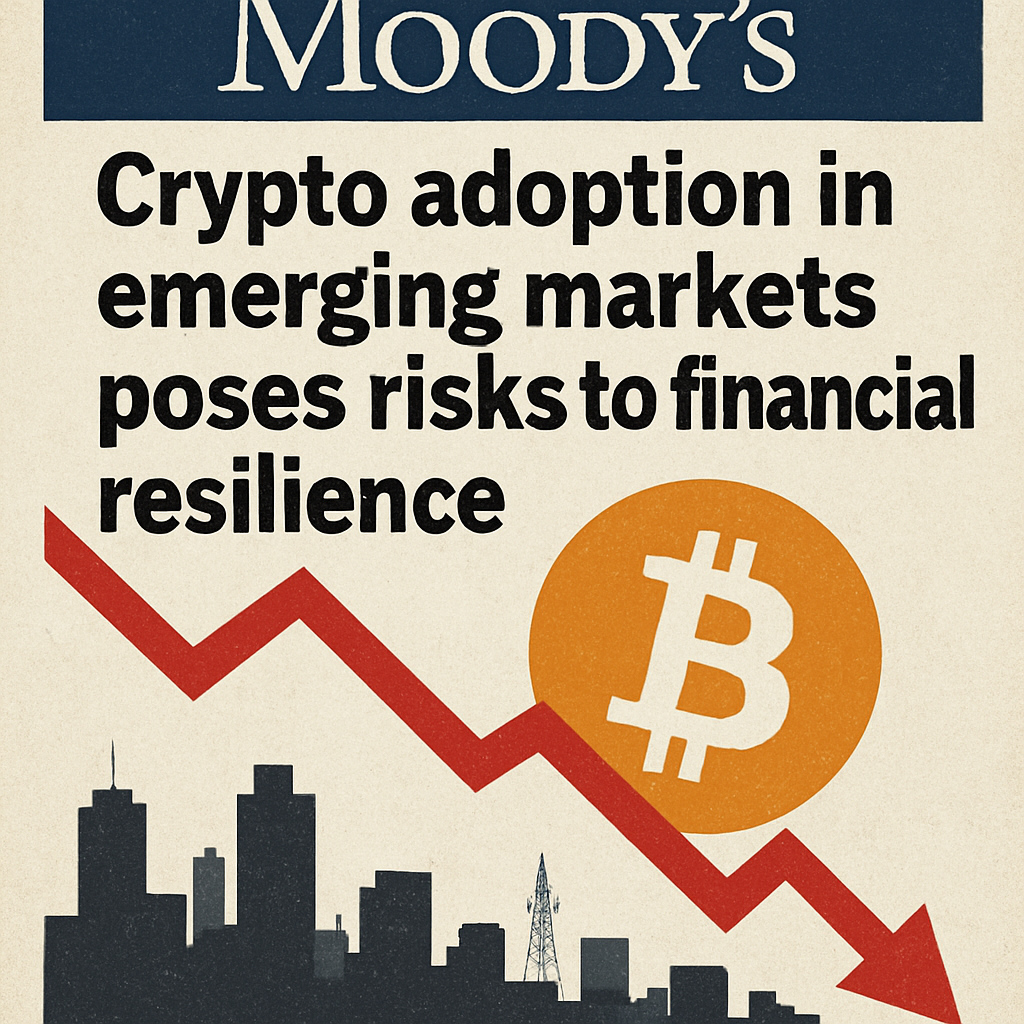Credit ratings agency Moody’s Ratings released a report on September 26 assessing the macro-financial implications of heightened cryptocurrency adoption in emerging market economies. The analysis indicates that extensive use of stablecoins and other digital tokens could weaken central banks’ ability to conduct effective monetary policy, particularly in regions facing chronic currency depreciation and inflationary pressures.
Moody’s identifies the primary transmission channels at risk as deposit substitution, where stablecoins pegged to foreign currencies supplant local currency holdings, and payment substitution, in which goods and services pricing shifts away from the domestic unit. These dynamics resemble unofficial dollarization but operate with reduced regulatory oversight and limited visibility for monetary authorities.
The report estimates that global crypto ownership expanded to approximately 562 million individuals by the end of 2024, reflecting a 33% growth year-on-year. Adoption has been most pronounced in Southeast Asia, Africa and parts of Latin America, driven by factors such as restricted access to formal banking services, currency volatility and remittance cost‐efficiencies afforded by blockchain-based transfers.
In contrast, introduction of stablecoins in established economies remains predominantly investment-oriented, with transparent regulatory frameworks and integration within licensed custodial platforms. Emerging markets often exhibit fragmented legal structures and inconsistent enforcement of anti-money laundering, customer identification and securities regulations, heightening systemic vulnerabilities.
Moody’s cautions that sustained growth in cryptocurrency settlements outside domestic currencies could erode seigniorage revenues, reduce central bank control over credit conditions and amplify cross-border capital flight channels. Additionally, the opacity of certain blockchain protocols may diminish the efficacy of illicit activity monitoring and financial integrity safeguards.
Policy recommendations from the report include enhancing regulatory clarity for digital assets, expanding central bank digital currency (CBDC) pilots to provide domestic digital payment alternatives, and strengthening cross-border cooperation on stablecoin governance. Moody’s underscores the importance of bolstering institutional capacity to monitor onchain flows and enforce compliance mechanisms.
Emerging market authorities face the dual challenge of fostering financial inclusion through digital innovation while preserving monetary sovereignty and systemic stability. The Moody’s report emphasizes that balancing these objectives will require calibrated regulatory approaches, enhanced transparency and investment in supervisory infrastructure.

Comments (0)